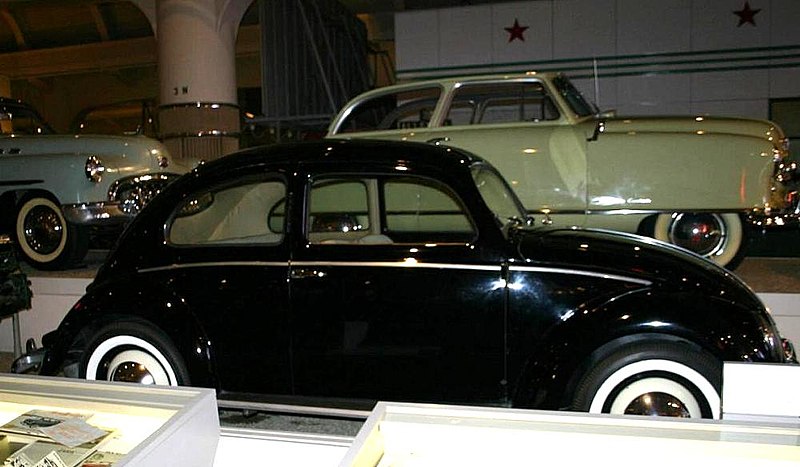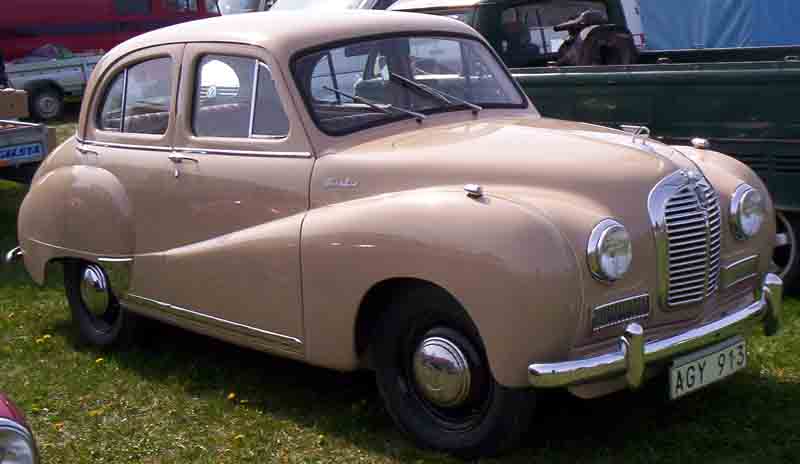Auto workers are not the problem; their (earned at bargaining tables) wages and benefits are a symptom of the problem.
All the anecdotal evidence from all the Army.ca members is totally, completely worthless. The statistical evidence of the past 50 years tells a far, far different story:
http://blog.macleans.ca/2008/11/20/the-decline-of-the-north-american-car/3/
In the early 1960s, they controlled almost 95 per cent of the U.S. auto market. By 1980, that had slipped to around 80 per cent. Even a decade ago, GM was still the world’s largest company. Today, the label “Big Three” is about as dated as the tail fins on a ’50s Cadillac. With a market share of around 44 per cent, they’ve been downsized to “the Detroit Three.” The Asian carmakers, like Toyota, Honda, Hyundai and Kia, now hold 48 per cent of the U.S. market, according to Autodata Corp. And last year, Toyota sold more cars globally than GM for the first time. German carmakers like Volkswagen have also established themselves as industry giants. Thirty years ago, these companies were afterthoughts in North America. This summer, the Honda Civic overtook the Ford F-series pickup as the bestselling vehicle in America.
GM, on the other hand, has gone nowhere. In 1962, it sold 4.2 million automobiles and employed 605,000 people. In 2005, GM sold 4.5 million cars and employed 335,000 people—26 per cent of the market, with 11 major competitors. And while critics often point to rich employment contracts as the culprit in GM’s decline, that is only part of the story. While labour accounts for roughly $1,500 of the cost of each vehicle, GM, Ford and Chrysler offer anywhere from $3,500 to $7,000 in incentives to car buyers, says Ken Lewenza, the new head of the Canadian Auto Workers. “It’s not about labour rates, it’s about market, market, market. We could work for nothing and it still wouldn’t improve the bottom line or market conditions.”
Read those numbers again: over the past 45± years GM has produced about 200,000,000 vehicles but its market share, in North America, has dropped from around 45% of nearly 10,000,000 cars per year to about 20% of nearly 25,000,000 cars per year. Ruthless, effective and efficient competition from Asia and Europe has made most cars much more affordable (as a percentage of
normalized take family income), thus ‘growing’ the entire market (there are many, many more two and three car families in 2008 than there were in 1958) and ‘growing’ the range of passenger vehicles available (from the tiny
Smart fortwo through to the mighty
Dodge Ram with everything imaginable in between).
Toyota is not, now, the world’s top automaker because it made or makes junk. The fact that eight of the world’s top ten automakers are Asian (four) and European (four) is not because they undercut the Big Three’s prices around the world.
Starting in the ‘50s the Europeans began a serious assault on the rich North American market, offering cars
Ford executive were reputed to have described as “not worth a damn!”
North Americans wanted these small, economical and cheap cars – the growth of suburbia created demand for a second car to augment the big family sedan that dad drove to work.
By the late ‘70s Asian and European cars had a strong foothold in North America, thanks, in part, to the 1973 energy crisis that focused North American minds on fuel economy. The Japanese, especially, under the guidance of
Deming and
Juran focused on quality just as the Big Three were revelling in the idea of
planned obsolescence which made quality a second tier consideration. By the ‘90s the Japanese were able to charge a premium price for their modest cars
and increase their market share at the same time.
The simple fact is that the Big Three are dinosaurs and, like the real dinosaurs of 65 million years ago they are going to go extinct. Just as the dinosaurs’ descendants remain amongst us, in the form of chickens, for example, so the descendants of the Big Three will remain – smaller, more utilitarian and less threatening.
We, American and Canadian taxpayers (and probably Australian, Brazilian and Chinese taxpayers, too) are going to throw billions and billions (only just starting with $20+ billion in 2008) at the dinosaurs in a vain effort to stop them from slipping into the tar pits – that may help to ease the inevitable, for the benefit of a few tens of thousands of middle class working men and women.
We need a new business model for the automotive sector. Asia will, almost certainly provide it.



